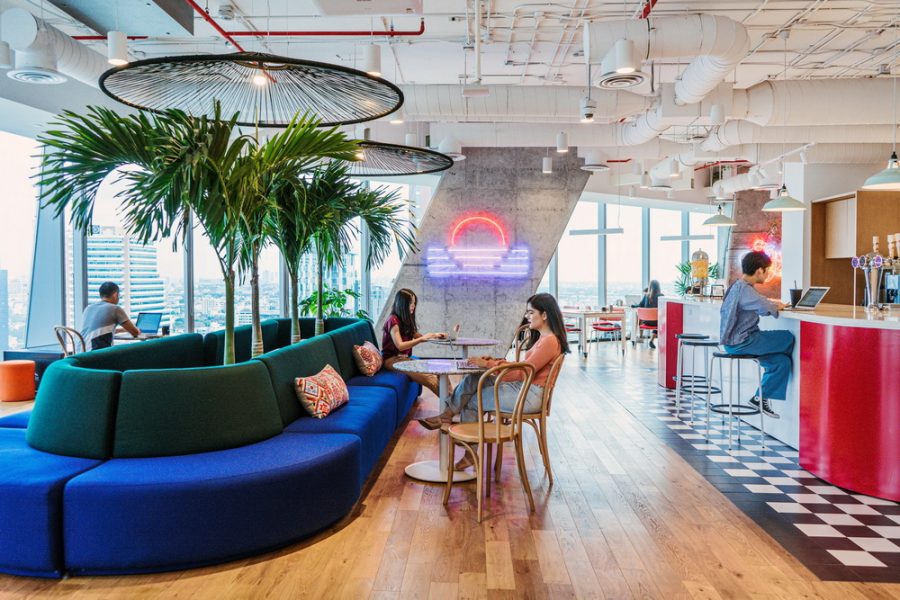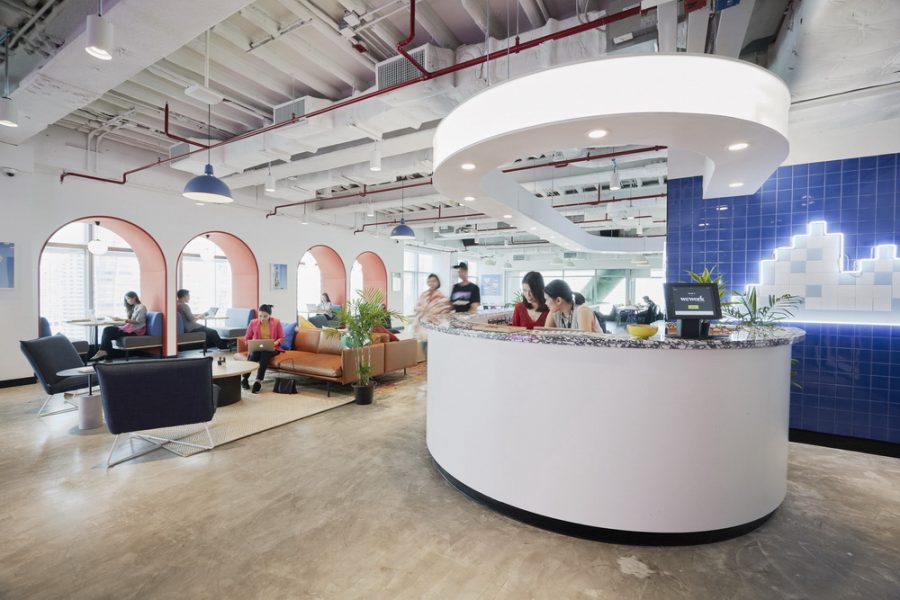![]()
WeWork Thailand Sees Increase from Enterprise Sector as they Define the Future of the Workplace Post COVID-19
The global pandemic has seen a spike in interest in co-working spaces as employers and employees consider how the future of the workplace, post COVID-19, will look. Global space-as-a-service provider WeWork, with 32 spaces across Southeast Asia including four in Thailand, has seen enterprises increasing almost 10% in its member pool during the COVID-19 period (March to July, 2020).
As businesses and staff return to work, needs and priorities have changed. Having embraced the evolving “new normal”, benchmarking cleanliness and sanitization standards, and providing essential space flexibility and agility for businesses, enterprises are increasingly turning to WeWork as they pivot and reimagine their workplace strategy post COVID-19.
“Beyond the short term requirements of creating safe spaces for employees to return to, we are seeing enterprises accelerating efforts to inject flexibility into their real estate portfolio. Over the last couple of months, we have continued to help companies address their workspace needs to ensure their long-term business success. WeWork is designed to help support this shift and will continue to see the new work order’s emphasis on a hybrid of flexible workspace arrangements,” shared Ray Tan, WeWork head of Growth, Southeast Asia and Korea.

If COVID-19 has highlighted one thing, it is the unpredictability and speed with which things can change. As companies return to work and Thailand enters a new post COVID-19 reality, WeWork sees three key trends that are top of mind for enterprises in developing their new workplace strategies.
1) Workplace Flexibility – Companies need to empower sustainable work arrangements. As distancing shapes the new work order, alternative arrangements include a Hub-and-Spoke model by tapping onto different locations within the proximity to support a distributed workforce; to Phased Approaches in returning to work, all in which to also preserve the connection and company culture.
2) Operational Scalability and Cost Optimization – For many companies, WeWork’s speed to scale, the experience of being three times faster than traditional options, and reduction of committed costs by up to 50% are key differentiators for them. Companies are looking to move away from long-term lease commitments and opt for space-as-a-service providers like WeWork; while those focused on recalibrating their business have also opted to consolidate their presence with WeWork to support current operations, with hopes of expansion in the future.
3) Employee Experience – Companies need to drive confidence and assurance that hygiene and cleanliness standards are met for employees returning to the office, and this is made possible with WeWork’s expertise as a partner. With WeWork’s locations ready from prioritizing personal space to increased sanitization, our physical spaces highlight the importance of these elements such as employee integration and experience to drive productivity, motivation and connection.
“As the office gets repurposed to become a distributed and collaboration hub, the emphasis is now on mid- to long-term focuses needed to support productivity and a robust culture. Through our conversations with leading enterprises, it’s clear that the success of businesses depends heavily on how nimble teams are in adjusting to this change. WeWork is designed to support this shift as we continue to support enterprises navigate through this period,” added Tan.

WeWork’s prompt action when the pandemic first started meant locations in Thailand already implemented best practices from an operational and hygiene standpoint in compliance with local rules and government guidance. As a first-mover in the industry, WeWork’s promise to deliver exceptional, innovative, and safe spaces has always been a commitment. Along with its Future of Workplace strategy, heightened cleaning and sanitization, the implementation of staggered seating and buffer zones to ensure professional distancing in shared spaces, and behavioural and capacity signage have all helped to ensure a safe and healthy workspace.
With 10 years of global experience leading the co-working industry and being home to two-thirds of Fortune 50 companies, WeWork is a trusted partner for businesses such as Microsoft, Slack, Pinterest, KPMG and many more. As Thailand further opens up and adopts the “new normal”, WeWork envisions that there will be a bigger emphasis on collaboration and community, and is ready to support companies in rebuilding Thailand’s economic growth in a post-COVID world.












